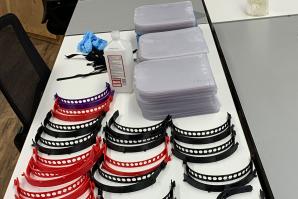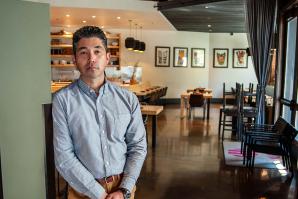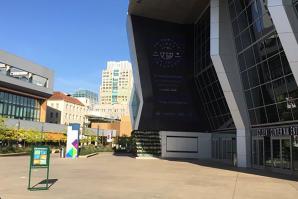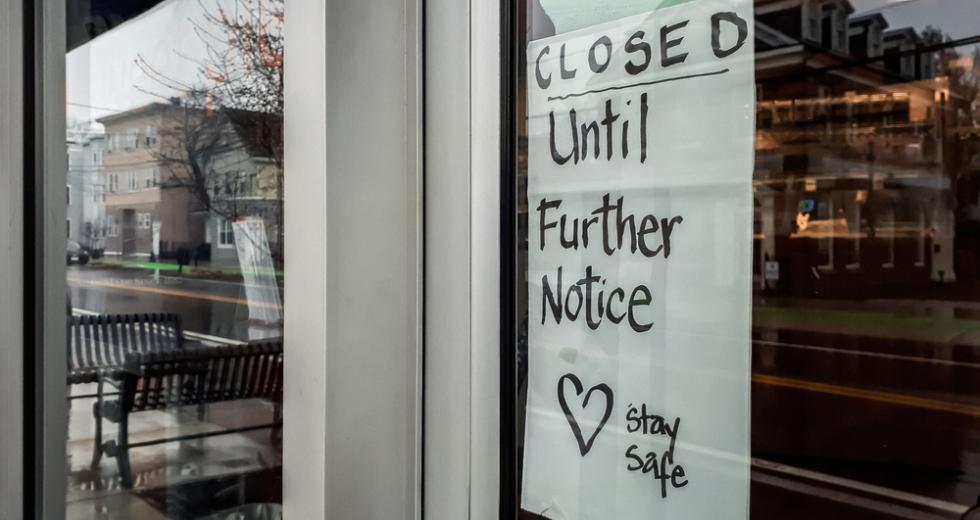When I first heard the coronavirus had arrived in the United States, I presumed, like many of you, that it was a serious threat. After all, the deadly nature of COVID-19, the disease caused by the coronavirus, had already been reported from China. But it was also easy in those first days to presume it could be contained or isolated to the hot spots where it had been transported by international travelers.
But, as we all know, the virus quickly asserted itself as the most virulent threat to worldwide public health in a century, rivaling the Spanish flu pandemic of 1918. As the coronavirus began to spread from both sides of the country like a prairie wildfire, government officials were faced with a dilemma. To prevent the massive death toll that countries like China and Italy already had, they had to set proverbial backfires to slow the spread.
Some people may see the shelter-in-place orders and the closing of nonessential businesses as a choice between the lesser of two evils: save lives or save the economy. But public health and the health of the economy are tied together, especially in an economy driven by consumer demand. Saving lives in the short term is the only way to preserve our economic health in the long run.
There is no doubt about the economic pain the coronavirus has caused in the Capital Region and across the world. To an extent, there are aspects of our region’s economy that help cushion the blow. Many people who provide professional services and government employees are still drawing paychecks while they work from home. Homebuilding continues since construction work, a growing segment of our economy, is exempt from stay-at-home orders. Some essential services, such as grocery stores, are keeping their doors open and are even hiring additional workers to stock shelves.
Even so, there is no denying the extent of hardship caused by closing down the economy. Among the hardest hit are people who work in the service industry — retail shops, hospitality and restaurants — and small-business owners. When the City of Sacramento began offering loans to small businesses after sheltering in place was ordered, it was overwhelmed by more than 3,000 applications for the few loans that were available.
The federal Coronavirus Aid, Relief, and Economic Security Act aims to help get small businesses through the short term. Among its $2.2 trillion worth of provisions, CARES boosts unemployment benefits for laid-off workers and, according to the U.S. Chamber of Commerce, provides California with up to $48 billion in government-guaranteed loans for small businesses, which will be forgiven if the money is used for operating expenses and paying employees through June.
The distance between Sacramento and Washington, D.C., has never been shorter, as business and government work together during this crisis. I have great faith in our country and our people, and I believe the economy is going to surge when COVID-19 is under control.
Entrepreneurs are an underlying strength of our region’s economy, and they are stepping up to get us through the pandemic. Repkord, a 3D printing company in Auburn, for example, with the help of Hacker Lab in Rocklin and Titans of CNC, is making face shields for health care workers using material from West Sacramento’s Professional Plastics. Dry Diggings Distillery in El Dorado Hills and Sacramento-based Pacific Ethanol are transforming their unused alcohol into hand sanitizers. That kind of attitude and innovation gives me confidence about our economic recovery in the long term, even if it might take many months.
As I write this, California announced a record number of applications for unemployment. And while there is evidence that sheltering in place is working, there is a possibility that another surge of the virus may come. By the time you read this, we will have a better idea of how we are faring and how much longer it will go on.
We are all in this together, even if we are 6 feet apart from each other. With patience, not panic, we can flatten the curve, and we will rebuild our economy.
Winnie Comstock-Carlson
President and Publisher
–
Stay up to date on the effects of the coronavirus on people and business in the Capital Region: Subscribe to the Comstock’s newsletter today.
Recommended For You

A Shield Against COVID-19
Operation Shields Up aims to create at least 12,000 face shields for first responders treating COVID-19
Alan Puccinelli, an Auburn resident and founder and CEO of 3D printing company Repkord, is working to create face shields for medical professionals treating COVID-19.

How Are Sacramento Restaurants Handling the Coronavirus?
The coronavirus quarantine has devastated the Sacramento restaurant scene. We talked to several prominent local restaurateurs to see how they are handling the situation.

Holding Pattern
Variety of local businesses shuttered by COVID-19 await reopening
Comstock’s has been following four businesses that have been helping to drive the resurgence of Sacramento’s central city in recent years. Here’s how they’re faring a month into the shutdown.

Business as Usual in Homebuilding
Construction workers are considered ‘essential’ in California’s shelter-in-place order
Across the Capital Region, construction continues as usual on housing, infrastructure and other projects, even as workers in other sectors shelter at home.





Comments
Excellent perspective on our path forward. We are truly better when we work together. Stay positive, be resilient, and understand this too shall pass.